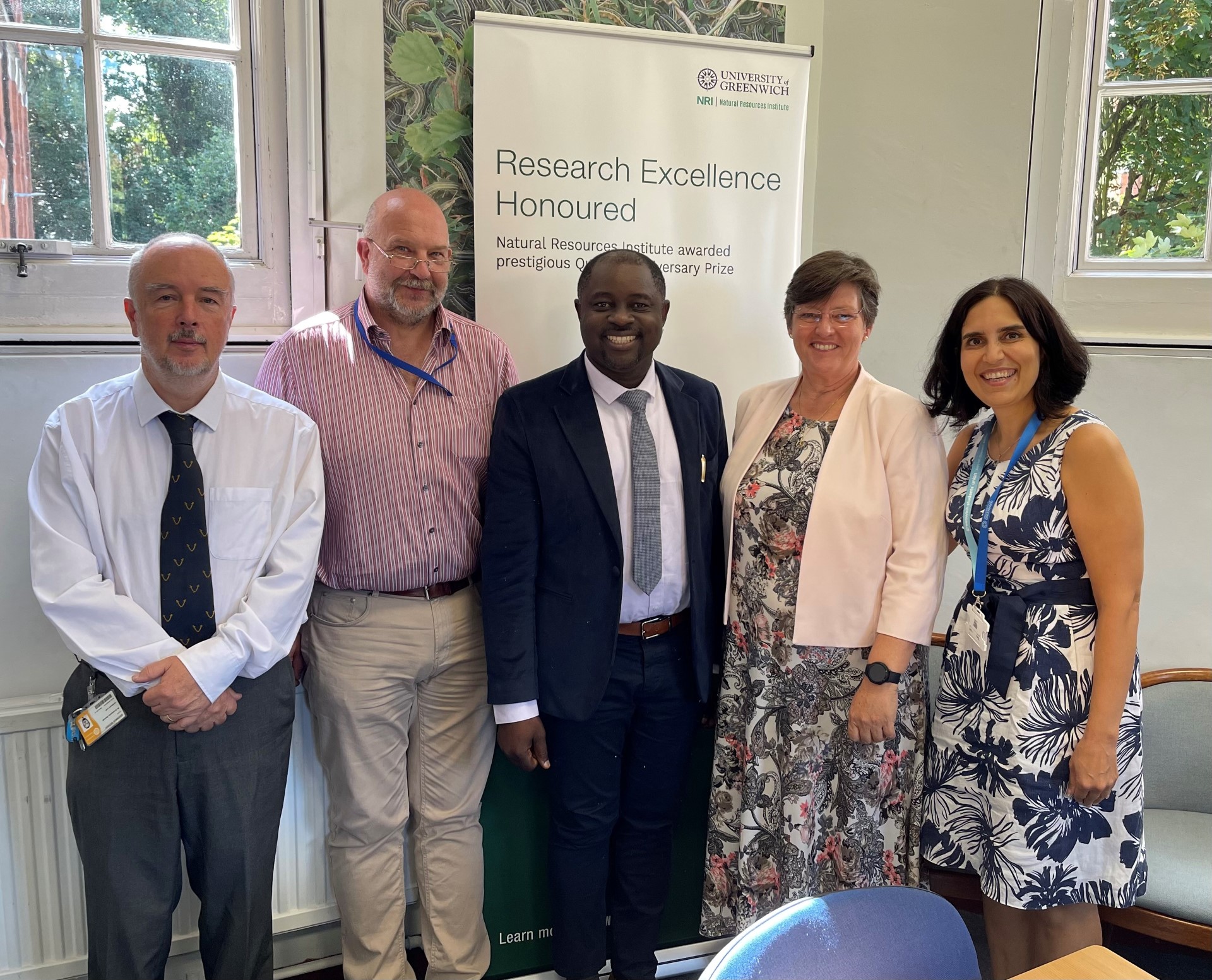CEFTER and NRI Deepen Academic Partnership
The Centre for Food Technology and Research (CEFTER) and the Natural Resources Institute have launched a partnership scheme to enhance scientific research. This partnership comes on the back of a successful teaching collaboration that has existed between the two parties for five years.
Under the new research partnership aiming to fund at least five projects, each party will contribute £50,000 in research revenue for the 2023/2024 academic year to grow research excellence.
The funds generated through the partnership will support innovative research discretions, generating data, and producing outputs that will lead to even expanded collaborative research opportunities.
The Natural Research Institute (NRI) is a specialized research, development, and education organization of the University of Greenwich, UK, with a focus on food, agriculture, environment, and sustainable livelihoods, which also align with the mandate of the World Bank-funded ACE Impact project.
In line with the core objectives of its mother ACE Impact project, CEFTER, through this partnership with international academics, will produce rigorous research that will identify innovations and technologies to reduce post-harvest losses in Nigeria and undertake sector-based knowledge exchange to address local, national, and international challenges.
For their individual contributions to this joint research scheme, CEFTER, which is hosted by Benue State University in Nigeria, will draw funds from its share of the ACE Impact project while NRI will draw from its Food and Nutrition Security Initiative (FaNSI). Together, the funding from the two partners will be used to cover their associated staff time and research costs.
The research will support applications low-cost potential for success in the following research areas: termite control, innovations in low-cost, post-harvest technologies for smallholder farmers and food processors, nutritional profiling of indigenous foods recommended for diabetic patients, packaging, and transportation of tropical fruits and national food supply forecasting, including import and expert deficits for rice and cassava and quantification of citrus and cassava produce in Benue State, Nigeria.
